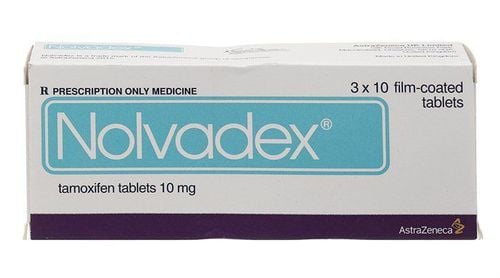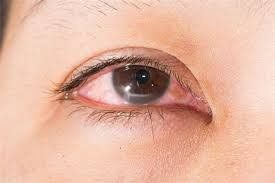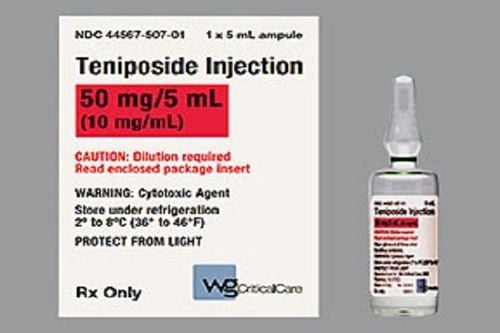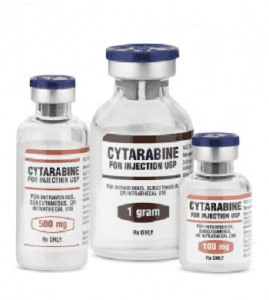This is an automatically translated article.
Cancer drugs work by various mechanisms, one of which is through alkylation to damage cancer cell DNA. Zepzelca contains the active ingredient Lurbinectedin which works by this mechanism.
1. What does Zepzelca do?
Zepzelca contains the active ingredient Lurbinectedin, which is an anti-cancer drug that uses alkylation to damage the DNA of cells, preventing them from dividing and dying. Cancer cells in general have a faster rate of division and less error correction than healthy cells, so cancer cells are more sensitive to the damage caused by Zepzelca.2. How to use Zepzelca (Lurbinectedin)
Zepzelca is administered intravenously at a dose dependent on the patient's weight. The frequency of use of Zepzelca is determined by the treating doctor. In addition, patients may be prescribed anti-nausea medications before starting Zepzelca.
Lurbinectedin blood levels are at risk of being affected when Zepzelca is taken at the same time with some foods or drugs, including: grapefruit, grapefruit juice, Verapamil, Ketoconazole, Rifampin, Phenytoin... Therefore, patients Be sure to give your doctor a list of all medications and supplements you are taking.
3. Zepzelca side effects
3.1. Lower white blood cell count White blood cells (WBCs) are important for protecting the body against infection. During cancer treatment with Zepzelca, the patient's white blood cell count may be low, so the risk of opportunistic infections will increase. Patients should notify their doctor or nurse immediately if they develop a high fever, sore throat or cold, difficulty breathing, cough, burning when urinating, or ulcers that do not heal.
3.2. Fatigue Fatigue is a very common symptom in patients undergoing cancer treatment. Fatigue is often not relieved by rest. While taking Zepzelca and for some time afterwards, patients need to adjust their daily routine, spend more time in the day resting and try to limit their energy to use for more important activities. . Moderate exercise, such as walking, is also a means of managing cancer fatigue.
3.3. Anemia The patient's red blood cells will carry oxygen to your organs. Zepzelca can cause a low red blood cell count, so patients often feel tired, weak or even short of breath. When the red blood cell count is too low, the patient should be considered for an additional blood transfusion.
3.4. Kidney problems Zepzelca can cause kidney problems, including increased blood creatinine levels. The treating doctor can monitor this side effect through blood tests. Patients should notify their doctor if they notice symptoms of kidney damage such as decreased urine output, hematuria, ankle swelling or loss of appetite.
3.5. Hepatic toxicity Zepzelca can cause damage to liver function. Your doctor will monitor this through liver function tests. If there are symptoms such as jaundice, yellow eyes, dark urine or pain in the right upper quadrant... the patient should inform the doctor as these may be signs of liver toxicity.
3.6. Hyperglycemia Zepzelca may increase blood sugar in patients with and without diabetes. The doctor will monitor the patient's blood sugar periodically. If there are unusual symptoms such as increased thirst, increased urination, hunger, blurred vision, headache or fruity breath, please inform your doctor. At the same time, patients with diabetes should closely monitor their blood sugar and report any increases to their doctor.
3.7. Decreased Platelet Count Platelets are part of the blood clotting process, so when the count is too low, the patient is at higher risk of bleeding. Patients should notify their oncologist if they experience sudden bruising or excessive bleeding, including nosebleeds, bleeding teeth, or blood in their urine or stools.
3.8. Vomiting Patients should talk to their oncologist for a prescription for medication to help control this side effect of Zepzelca . In addition, dietary changes can be helpful, particularly avoiding other causes of vomiting, which may include limiting overeating, avoiding greasy foods, and seasoning. or acidic.
3.9. Decreased appetite or altered appetite Nutrition is an important part of cancer treatment and care. Cancer drugs, such as Zepzelca, can affect a patient's appetite and in some cases can make it difficult to eat. The patient should try breaking up the day's meals into 5-6 small meals or snacks during the day. If eating is not enough, the patient can use nutritional supplements.
Some patients taking Zepzelca complain of a metallic taste in their mouth or a lack of taste in food. Some change in taste, not liking foods or drinks that were previously enjoyed. These symptoms may persist for several months or longer after treatment ends.
3.10. Muscle or joint pain Your doctor may recommend certain medications and other strategies to help relieve pain while taking Zepzelca.
3.11. Cough, difficulty breathing Some people taking Zepzelca may experience shortness of breath or cough. If shortness of breath worsens, the patient should notify the doctor immediately.
3.12. Electrolyte disturbances Zepzelca may affect the concentration of electrolytes (such as sodium, magnesium...) in the patient's body. Electrolyte levels will be monitored with blood tests. If electrolyte levels are too low, your doctor may prescribe additional medications intravenously or orally.
3.13. Rare side effects Rhabdomyolysis: In rare cases, Zepzelca can cause rhabdomyolysis when damaged muscle tissue releases proteins and electrolytes into the bloodstream causing severe pain and weakness. . The doctor will monitor the patient's creatine phosphokinase levels to manage this side effect; Extravasation: Even with careful and correct infusion by medical personnel, Zepzelca can cause burning sensation and pain. There is a risk that this medicine could leak out into a vein at the injection site, resulting in tissue damage that could be serious. If the injection site becomes red, swollen, or painful at any time during or after the infusion of Zepzelca, notify your healthcare provider immediately.
4. Effects on reproductive function of the drug Zepzelca
Exposure of the fetus to Zepzelca can lead to birth defects, so patients should not become pregnant or fathering while using this medicine. Practicing effective forms of birth control is essential during treatment and for at least 6 months after treatment for women and 4 months for men.
Patients should not breast-feed while taking Zepzelca and maintain this for at least 2 weeks after the last dose.
Please dial HOTLINE for more information or register for an appointment HERE. Download MyVinmec app to make appointments faster and to manage your bookings easily.
Reference source: oncolink.org













